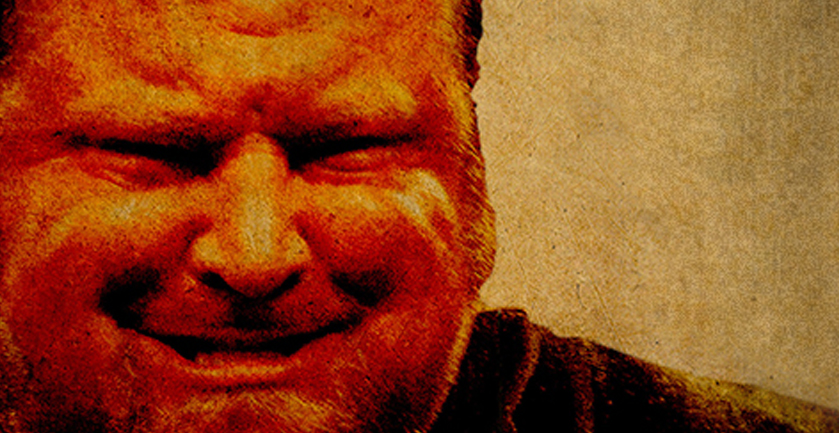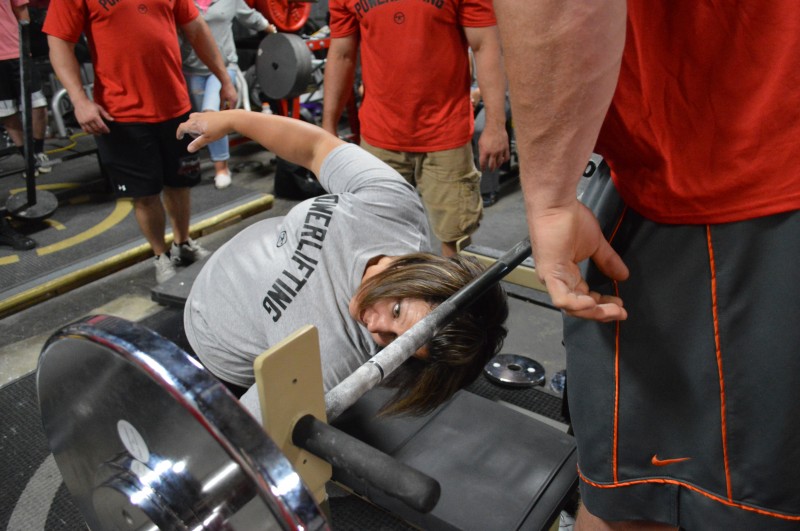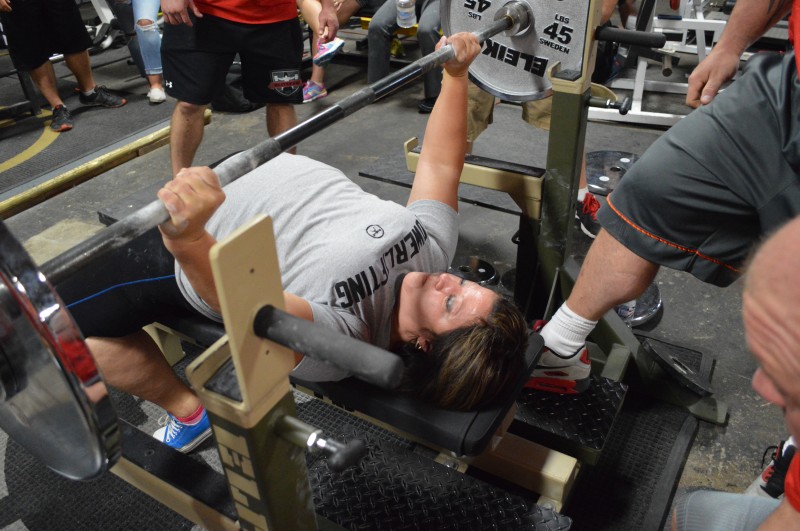
All lifters have personal records. Just ask anyone who lifts what he can bench. I guarantee that he'll have an answer, and if he says he doesn't, it's because he isn't proud of his number. Most serious lifters have personal records for all kinds of different lifts. Some may actually keep written records of these and others just keep them stored away in their heads. These personal records are an important part of any serious training program. They help track progress, they're great motivation to stay hungry at every training session and they give a lifter a good idea of where his main lifts are without actually performing them.
Ideally, we would always be able to keep improving our personal records. In the perfect lifting world, we would continually and forever be getting stronger. There would never be anything to stop or slow our gains or decrease our strength. Well, the lifting world isn't any different than the real world and neither are perfect. The fact is there are many things that can and will impact strength gains in a negative way. Injuries, age and illness are all facts of life and they all affect training in a negative way. They can slow or even halt strength gains altogether. In the most severe cases, they can end up decreasing our strength.
RECENT: Parallels of Lifting and Life — Confidence, Arrogance, Priorities
Lifters may also deal with body weight changes for different weight classes or for health reasons. Lifestyle changes usually have some affect on training as well. These could be anything from new jobs to family matters such as a new baby. There just is an endless amount of factors that can hinder our gains or decrease our strength. Most of the time, these things are minimal, and we can find ways to train around them while still increasing our strength. If they do set us back, it's only for a small amount of time. Sometimes though, the things that impact our gains can be pretty major and can set us back pretty far. When this happens, it can call for a different approach to regaining our strength.
Over my lifting career, I've had many serious hits to my gains from fairly intense injuries and my disorders. Over the past couple years, I had to take the worst hit to my strength that I've ever had to endure. As most people know, my bipolar disorder and narcolepsy got pretty out of control for a while and I had to do something about it. This meant that my main focus had to be doing just that, and my lifting had to go on the back burner. This actually helped me fully realize how much training had a major affect on my disorders. It turns out that overtraining, which is fairly easy for me with my sleep disorder, is a major trigger for my bipolar disorder and makes my narcolepsy worse. It's a vicious and ironic circle for sure.
Because I was already pretty beat up from training when I started this process, it meant backing off training even more to find a bit of homeostasis with my body. The result of all this is that I ended up missing a lot of training sessions, and I had to decrease the intensity. I made leaps and bounds in learning and controlling my disorders. Once things settled down, I started training with better focus and much more intensity. Within a few training sessions, it was really obvious that I had lost a tremendous amount of strength. I had dealt with this before with injuries and such but never to this level.
As I kept training, I started to get very frustrated when I thought about my old PRs and how much weaker I was now. The gains I was making and how quickly they were coming didn't really matter to me. I was pissed to not be where I used to be. I was irate at the thought of how much hard work I had put in to get so strong. It wasn't a good feeling or realization. It was very important for me to do the things I did in order to take my life back and I don't regret it, but at the same time, losing that much strength really sucked! I was also down over 85 pounds in body weight. I wanted all my strength back right away.
It didn't take me to long to realize that I needed to see things differently. I needed to take a step back and remember how I first got to those great levels of strength. Even when I picked up my training, I tried to jump back to exactly how I had been training before. My training has always evolved over time and that was based on my level of strength. Well, my level was way down. I also had to remember that I gained that strength by chasing smaller PR goals. Yes, I always had huge goals in my head, but it was chasing the smaller goals that led to the huge goals. Now, I was trying to train the same as I did at my highest level and expecting myself to beat PRs from that time. I think this was a huge mental mistake that I had to change. I was getting pissed off and frustrated in every training session. I'm all for using anger and rage in training, but this wasn't in a positive way. Instead of getting pumped about increases in my strength, I just saw how short I was from my old PRs.
I was getting focused on the main three lifts and trying to do them every training session, just wanting to get closer to my old lifts. I've trained conjugate for my entire powerlifting career, and I believe in always changing the main lifts based on what weaknesses I need to strengthen. I was completely blinded by the numbers I used to do and what my old PRs had been. This wasn't going to get me where I wanted to be.
I'm a very mental lifter and I'm very goal oriented. I needed to refocus my goals and a big part of that was to reset my PRs. I had to take a step back and admit where I was as far as my strength levels. I needed to realize that it's the small goals and continuous progress that get you to the big goals. The best way to make and track continuous progress is PRs on all max effort lifts. I needed to only remember my old PRs for long-term goals. I had to reset the bar so that I could start pushing it up again. This meant all new max lifts would be PRs and the baseline. This would help me see my strength gains in a positive way and help me focus on just getting stronger again. I didn't get to where I was by being pissed every time I didn't get a world record. Instead, I was excited about every PR, and the records came with time.
Strength training is a tough and long journey. It takes mental and physical toughness. It's inevitable that from time to time we will get knocked down. Sometimes it’s a very long fall, leaving us much weaker than we expect. It's easy to get wrapped up in all the lost work or how far it is to get back to where we were. We didn't start this journey because it was easy though. We didn't achieve our original level of strength because we were fragile. We have to remember why we even began the journey. We need to remember why we keep pushing and how we kept pushing. Sometimes we just need to reset our PRs and remember how we got so strong in the beginning. Resetting our PRs is a way of resetting our mind and our hunger. We will be retracing a bit of our journey, but this time, we will be smarter from all we learned the first time.












